Rewalking a March, Remarching a Walk
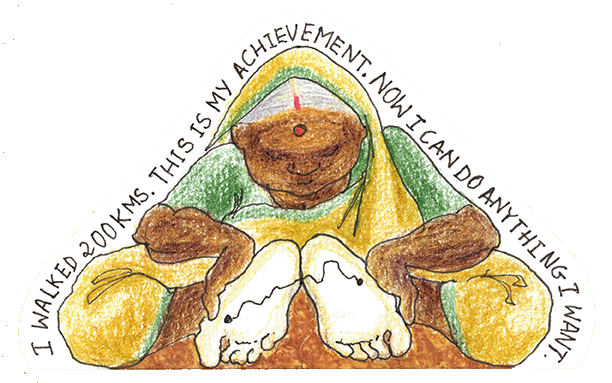
In March 2018, fifty thousand farmers – a huge sea of red and white – marched for seven days and six nights, covering 180 kilometers from Nashik to Mumbai to demand better living conditions. The Forest Rights Act of 2006 had not been implemented in 2018 and many farmers had been allocated forestland for subsistence farming, but no proper land titles had been given to them. Many incidents took place on the way: school students were writing board exams, urban residents distributed biscuits to the farmers and who can forget images of the blisters on the soles of the feet of the marchers. Two years after the march, what do the people who experienced it first hand, those who walked the walk, reminisce about the incidents?
In recent times – with the climate strikes and protests in Hong Kong, etc – walking, marching and protesting has gained increased significance. For many who could not participate but would have liked to have shown their support, Abhijit has created a retrospective opportunity. By walking alongside this miniature model of the 180 kilometer route traversed by the farmers, viewers can participate in the journey in retrospect and receive a darshan (experience/observe) of many incidents that transpired in 2018. Through this model, viewers can also read snippets of the testimonies collected by Abhijit that were not broadcast by mainstream media.
The artist pays his respects to the resilience of the farmers and is grateful to them for sharing their intimate stories with him, which he has persevered to handle with utmost dignity in this homage.
Rewalking a March, Remarching a Walk is realised within the framework of Five Million Incidents, 2019-2020, conceived by Goethe-Institut / Max Mueller Bhavan in collaboration with Raqs Media Collective.

Installation view at Max Mueller Bhavan, New Delhi (Dimensions 340 cm x 60 cm x 25 cm)
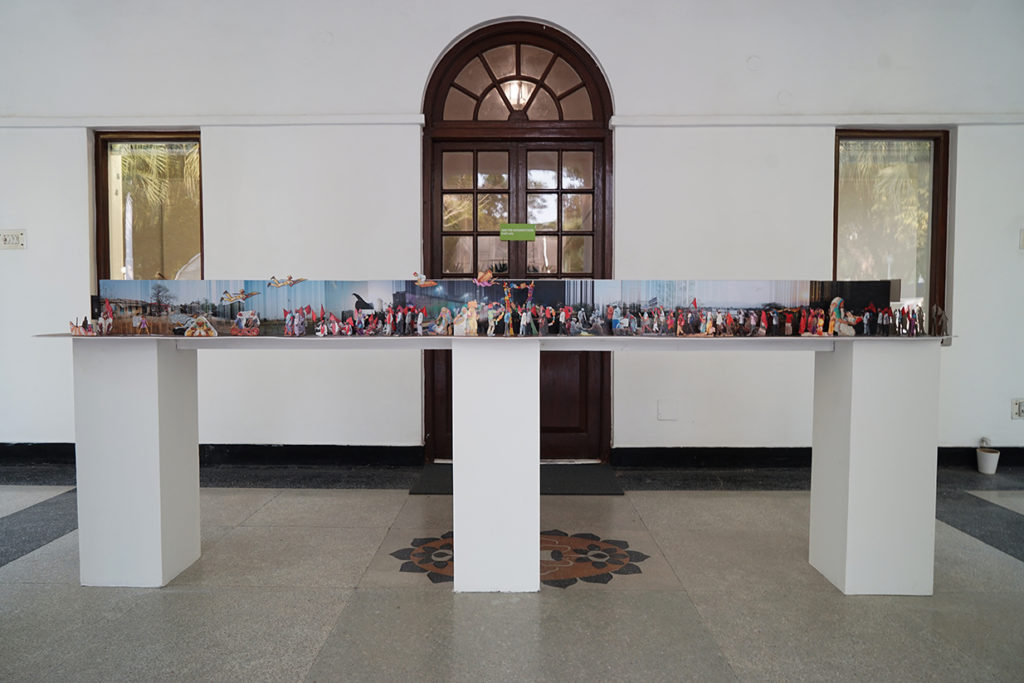
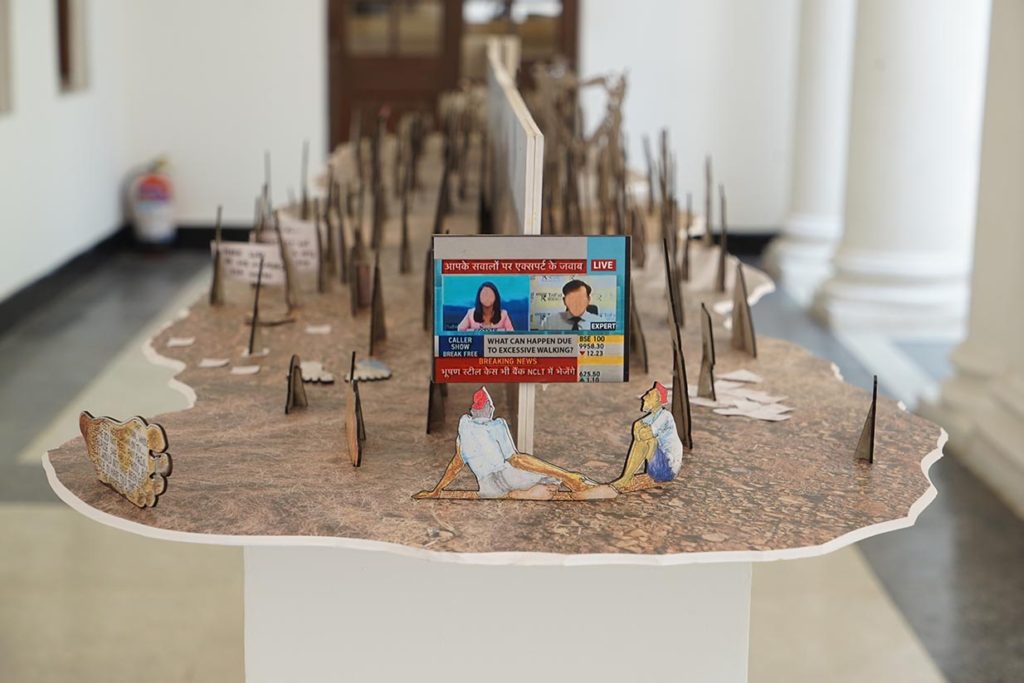
Details from the installation:
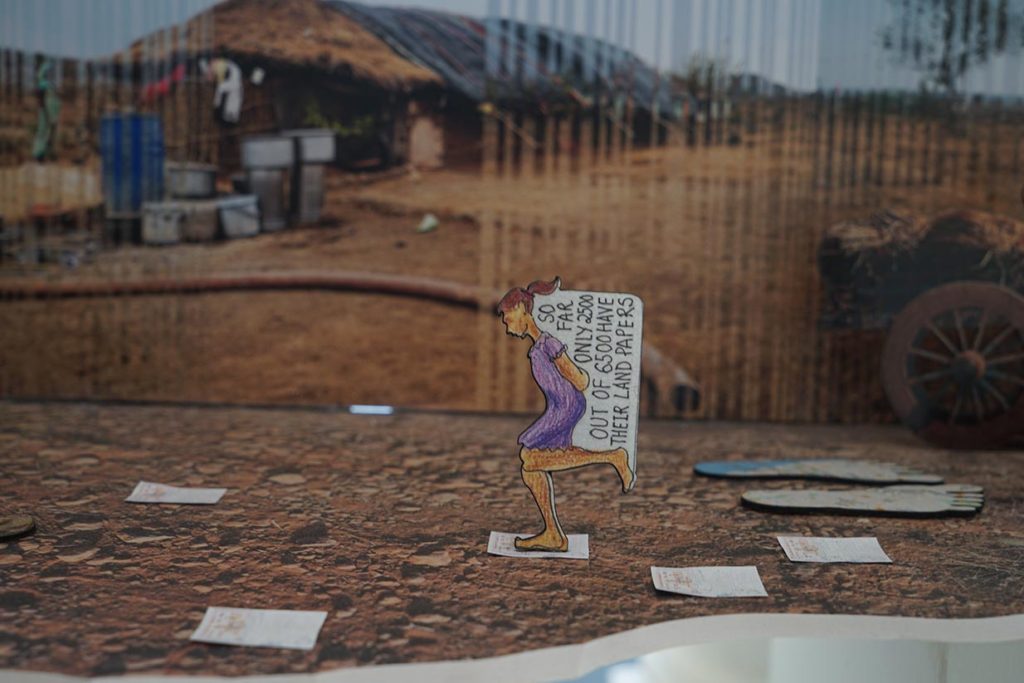
Farmers marched from the the villages of Chandwad, Malegaon, Nandgoan, Peth, Vaani and Surgana to demand titles for their land.
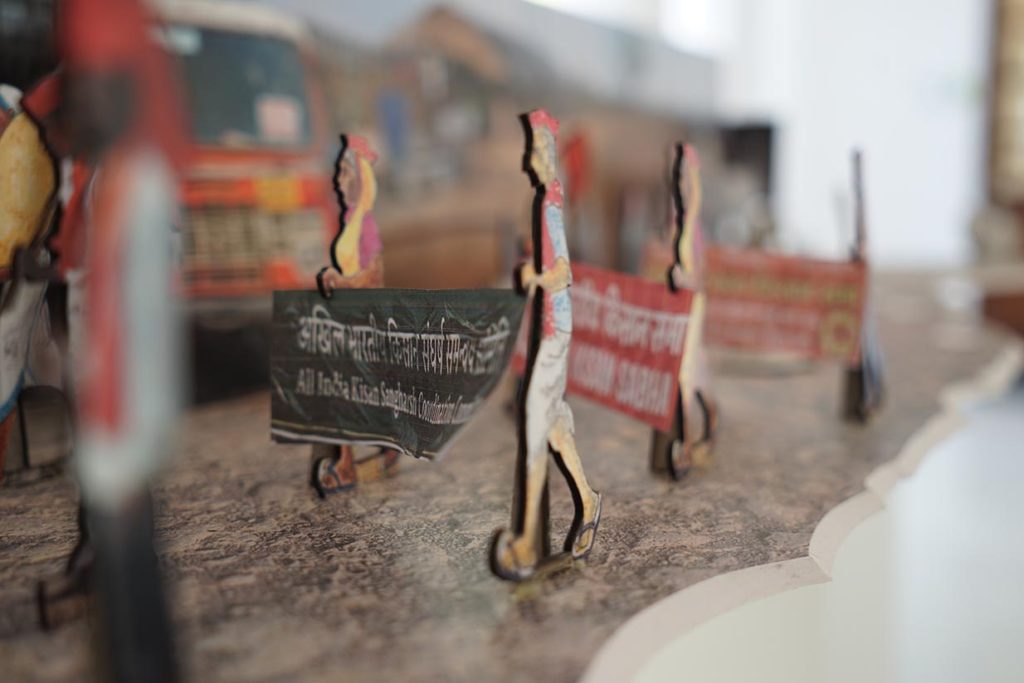
Nasik was the meeting point from where they marched together towards Mumbai…
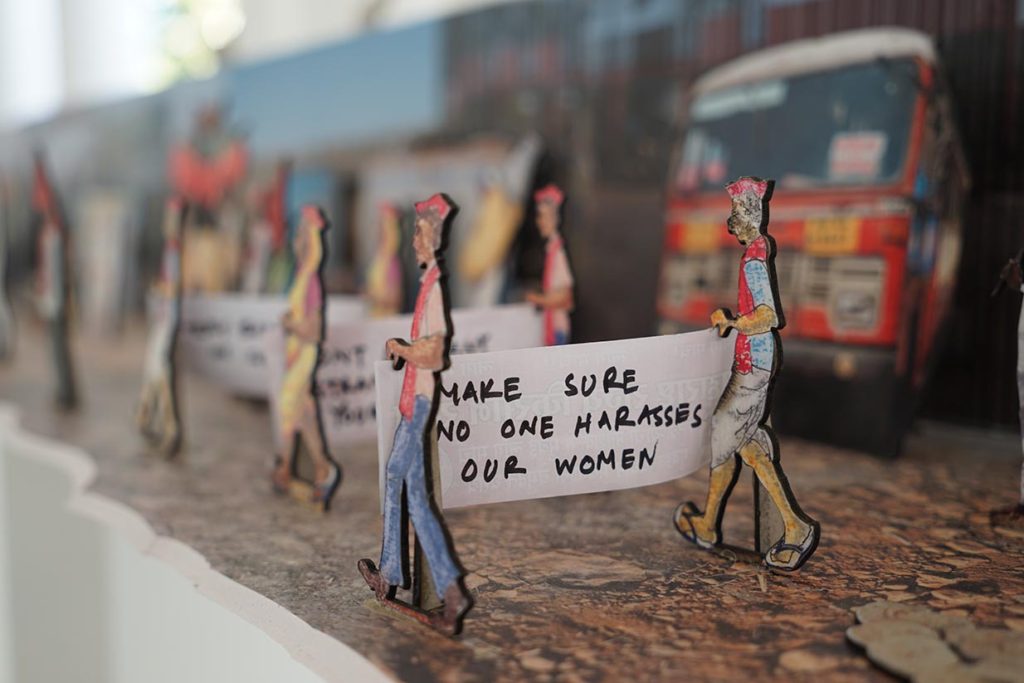
…maintaining strong group discipline to avoid any mishaps.
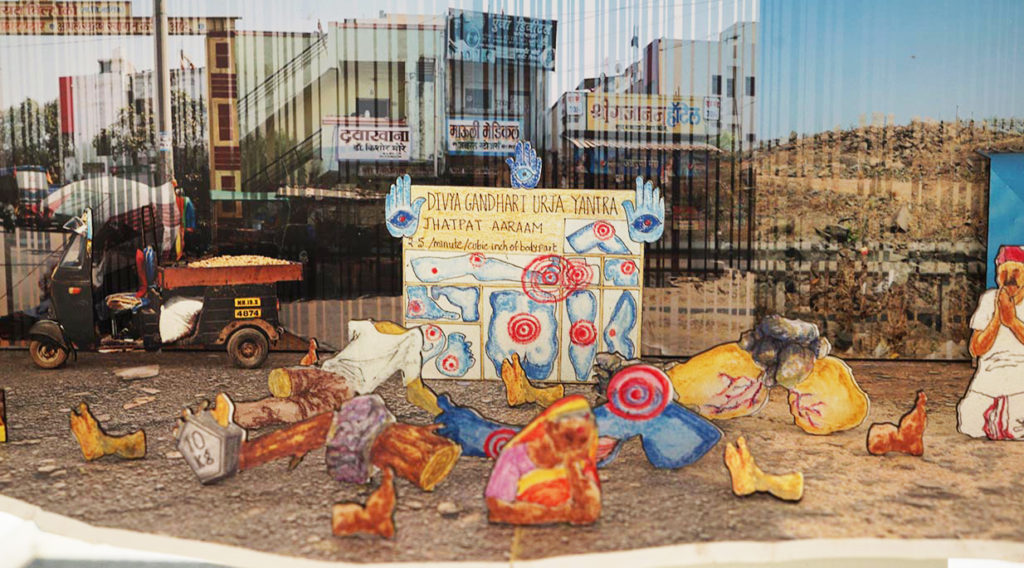
Listening to their testimonies, I wished there was some such therapeutic technology to lessen their pain.
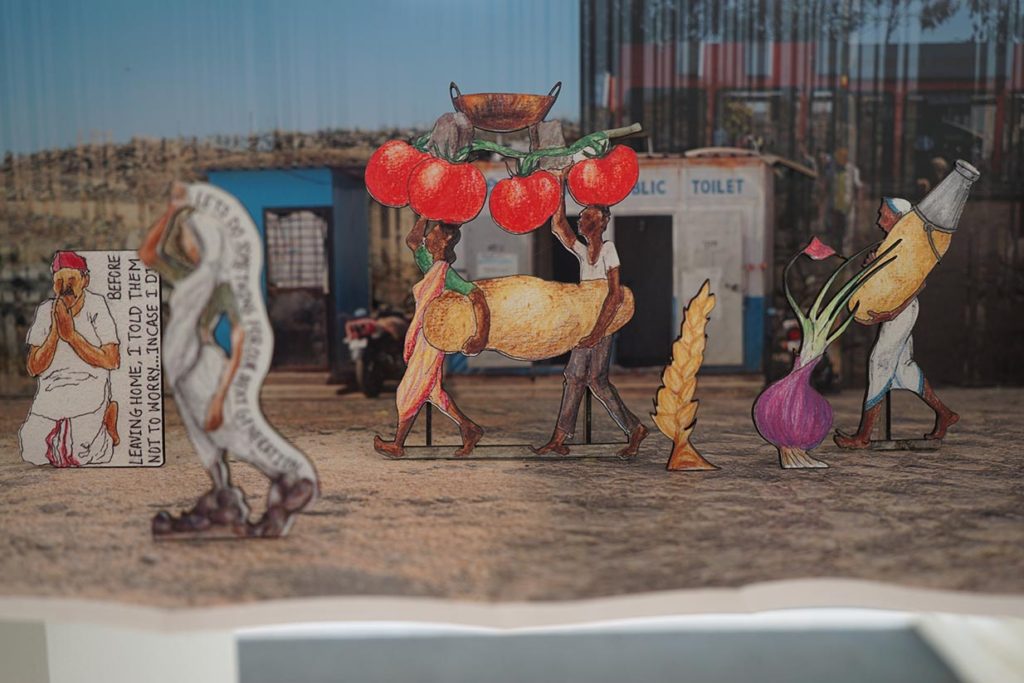
They carried their cooking utensils as well as food grains and purchased fresh vegetables along the way.
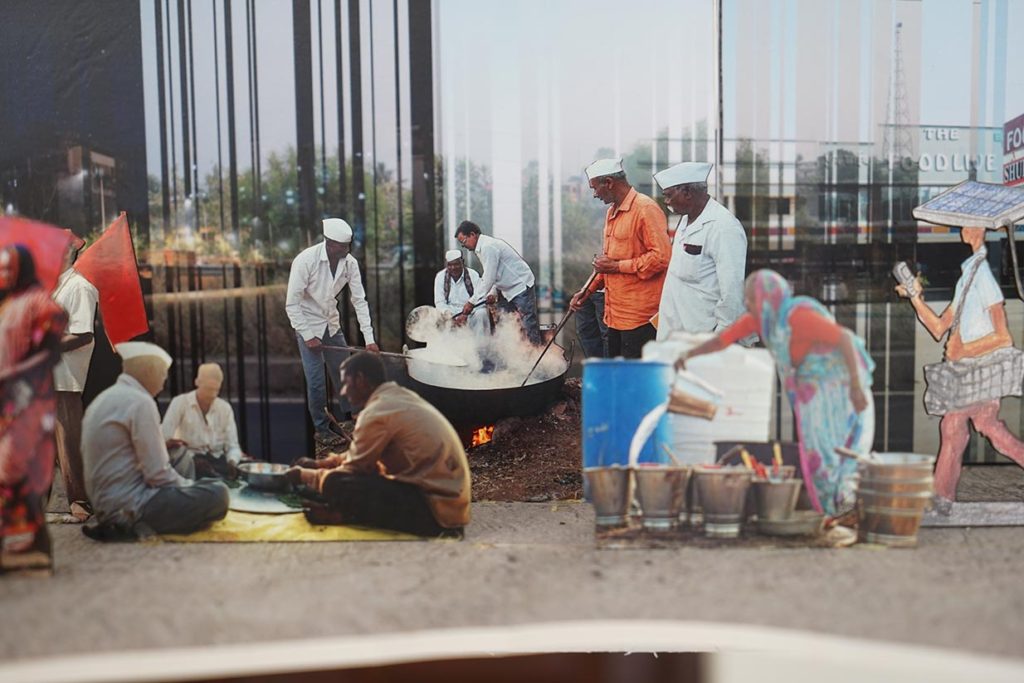
For fear of poisoning, they preferred not to take food from outsiders.
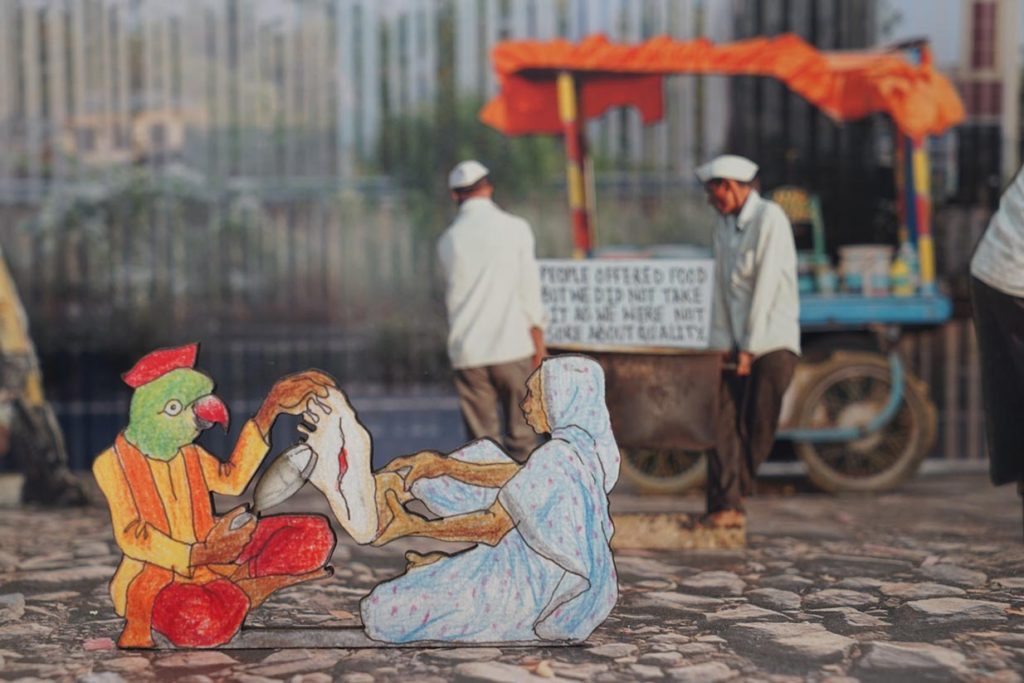
The world saw the images of cracked and bleeding soles…
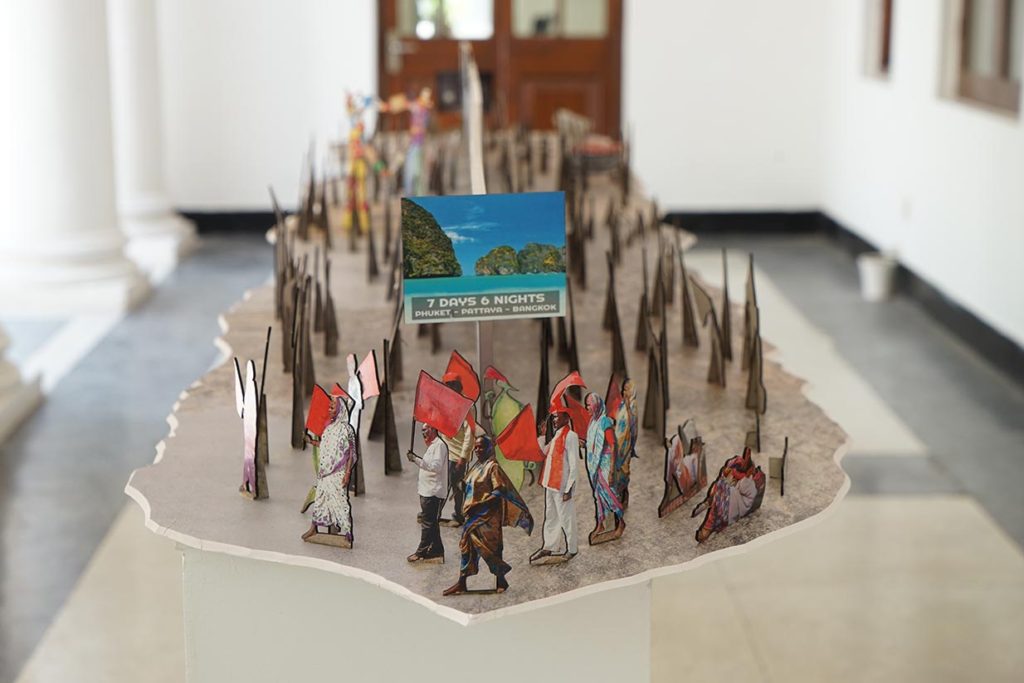
Seven days and six nights is how long it took to march from Nasik to Mumbai. They crossed Billohi, Kamalgaon, Asangaon and Anand Nagar and had walked 180 kilometers till they reached Mumbai.
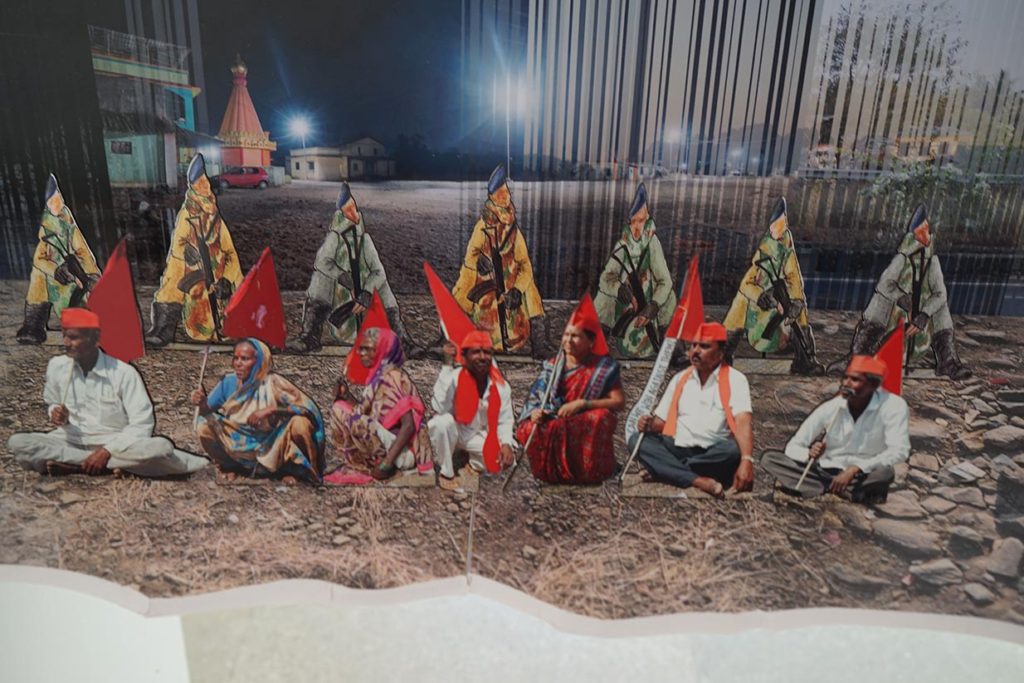
When the media picked up the story of their march, paramilitary forces were stationed along the path for fear of riots, but the farmers were unfazed.
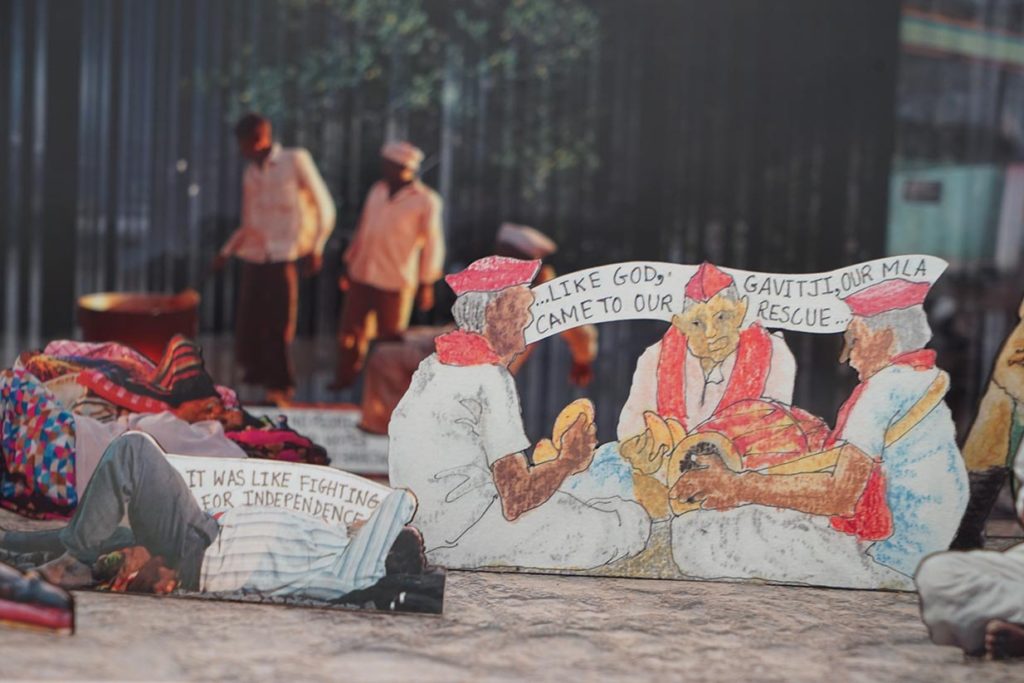
At night they sang bhajans after dinner. They had written one dedicated to their MLA who had organised this march.
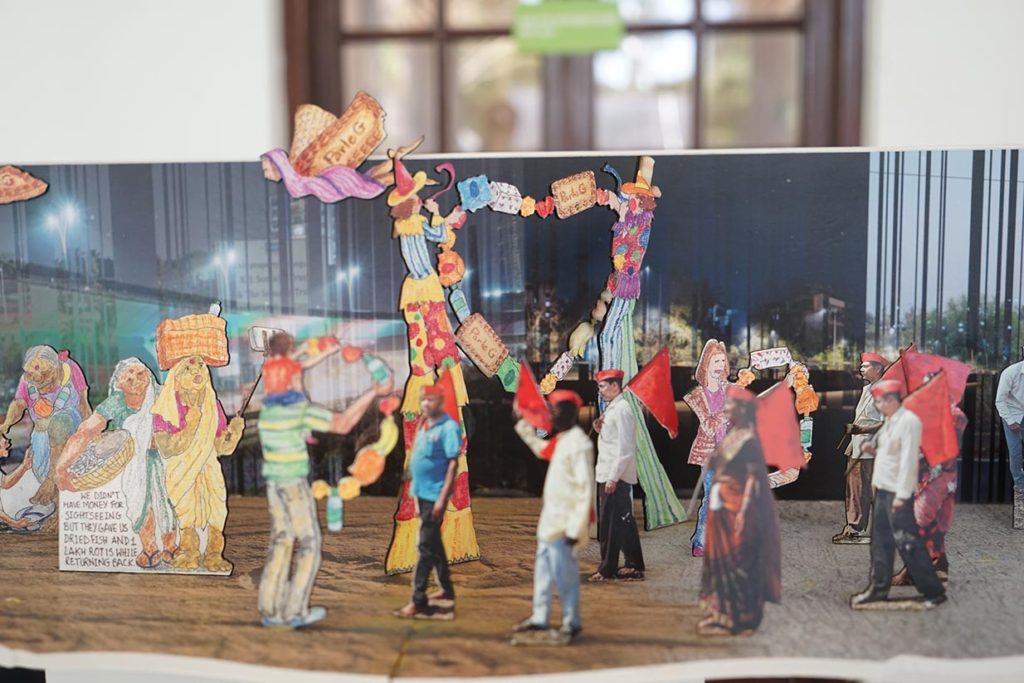
Mumbaikars welcomed the farmers with packed food and water supplies. Before entering Mumbai, the farmers spent the night at Samaya Maidan
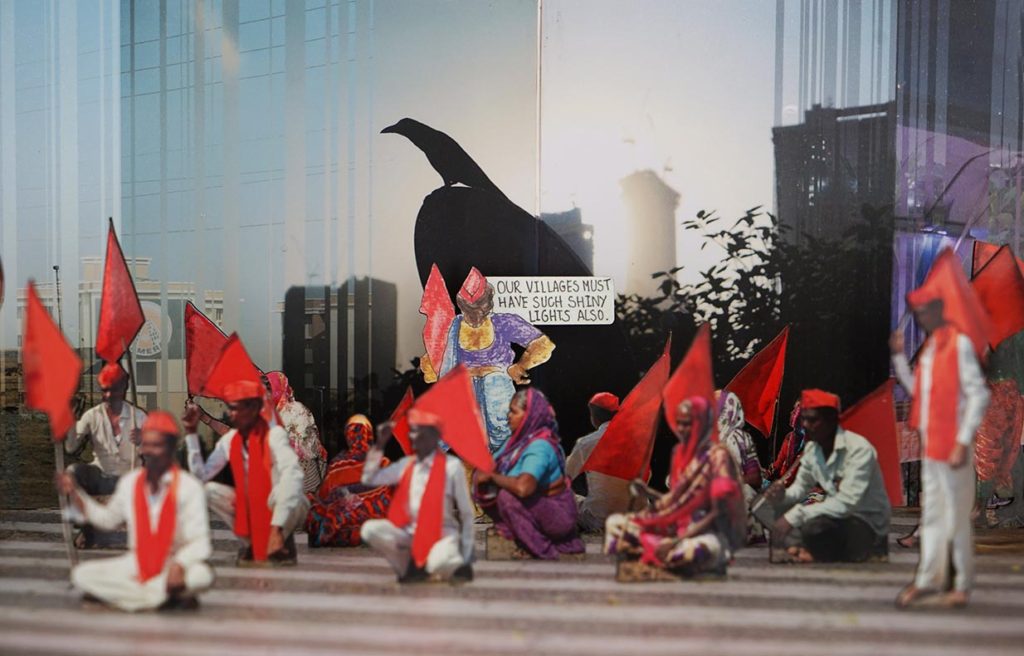
In Mumbai they camped for three days till the Chief Minister agreed to their demands.
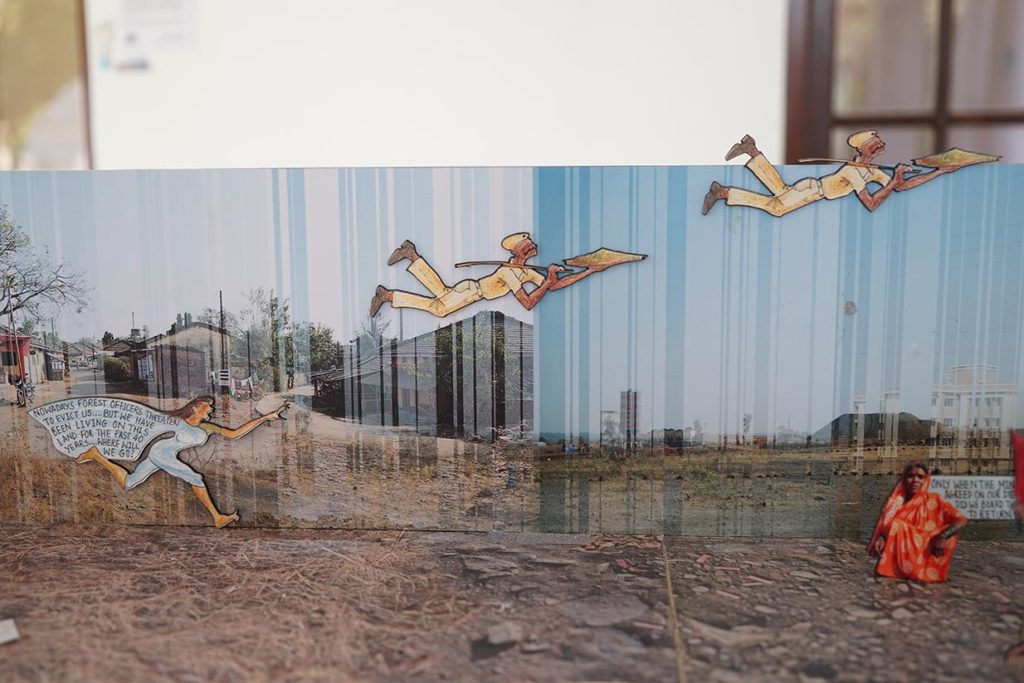
Not all their problems have been solved…
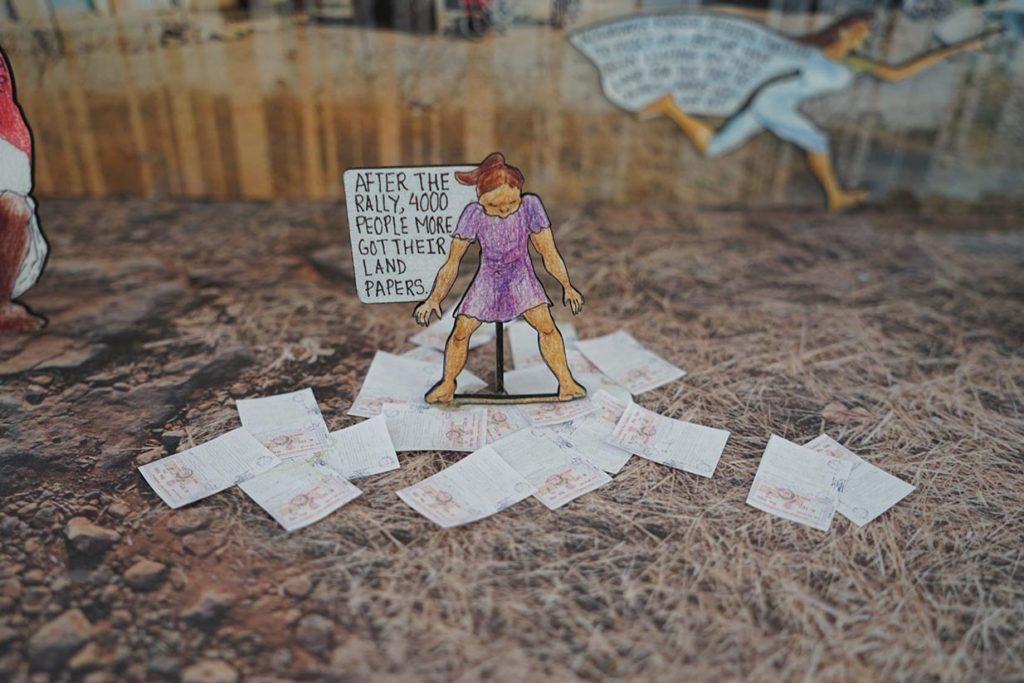
…but the rally was successful.
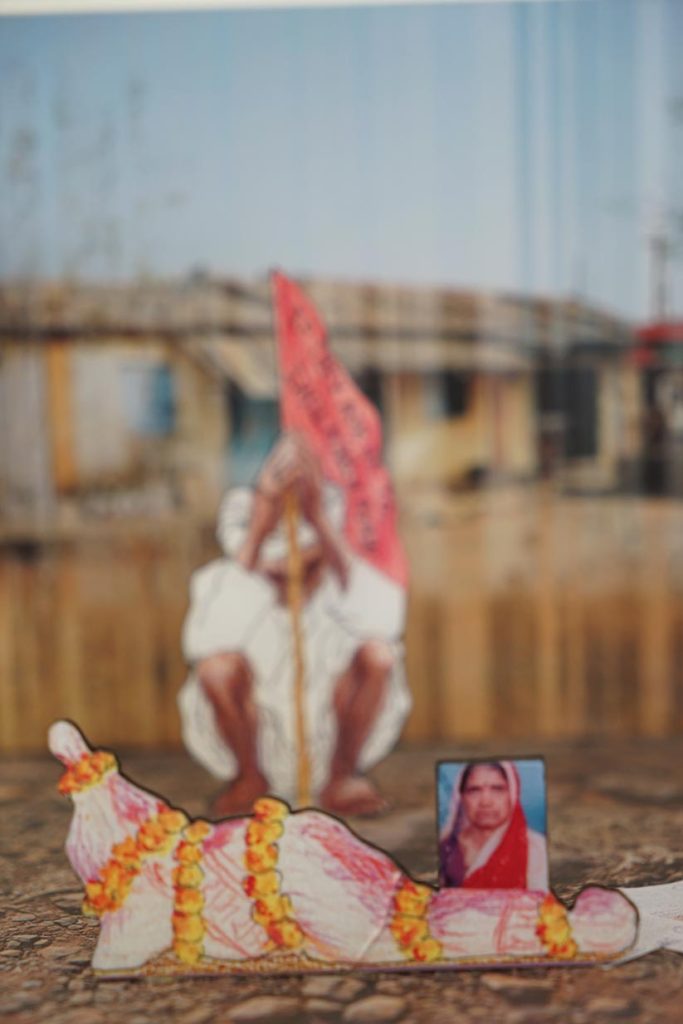
However a few people died due to exhaustion. Some lay in bed for weeks upon returning.
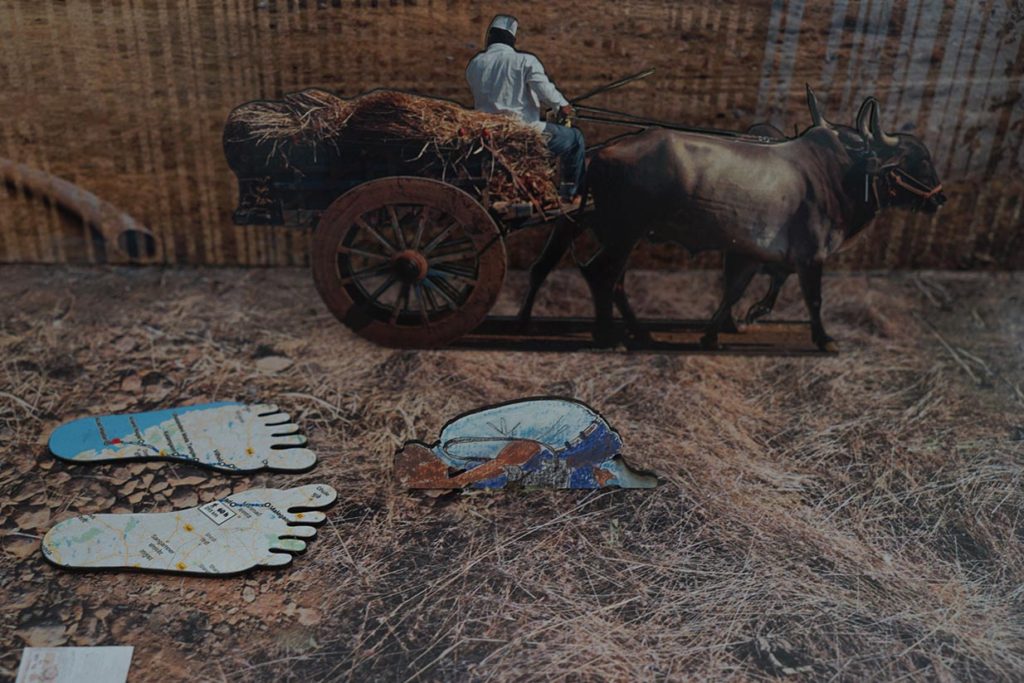
I pay my respects to the perseverance of these humble farmers whose struggle for their right to livelihood also ensures that the rest of society shall also be able to preserve their right to food.